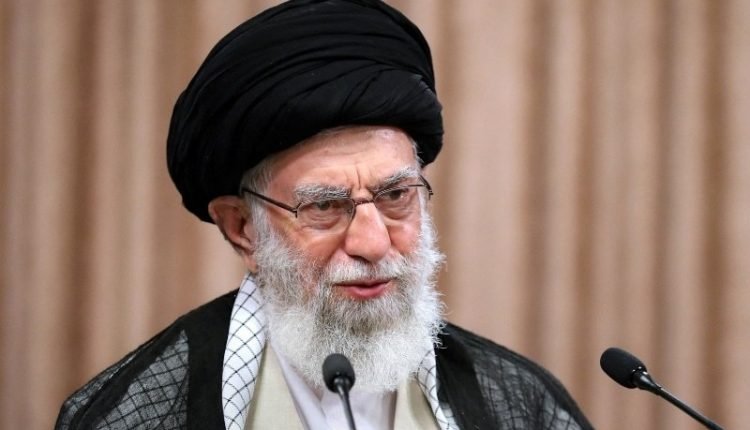Written by: Ahmad Waqar
The author is a student of MA International Relations.
Political extremism refers to the adherence to ideologies or political positions that are considered too radical, intolerant or outside the mainstream political arena. Extremists usually hold radical views and are willing to use violence or other coercive means to achieve their political goals.
Types of political extremism:
There are different types of political extremism, each with its own distinct ideologies and motivations. Some of the more common types are as follows:
Right-wing extremism: consists of extreme nationalism, xenophobia, anti-immigration sentiment, and often support for authoritarian or fascist regimes.
Left-wing extremism: consists of radical communist, anarchist, or socialist ideologies that advocate revolutionary change or the overthrow of the existing political system.
Countering political extremism requires a holistic approach that addresses the underlying social, cultural, economic, political and administrative factors that fuel its development. Political extremism can be reduced in various ways:
Social recommendations
Promote tolerance and inclusion: Promote a society that embraces diversity, respects different perspectives, and encourages dialogue and understanding.
Ending social and economic inequality: Reduce disparities in education, employment, and access to essential services to minimize feelings of marginalization and alienation that can fuel extremism.
Empower marginalized groups: Provide platforms and opportunities for minority communities to participate in decision-making processes and redress their grievances through non-violent means.
Cultural recommendations
Critically examine cultural narratives: Encourage critical thinking and questioning of traditional narratives that may promote intolerance or radicalization.
Promote cultural exchange and understanding: Promote cultural interactions to break down barriers and promote empathy between different groups.
Support alternative cultural expressions: Encourage the development and spread of alternative cultural forms that challenge extremist ideologies and promote peace and tolerance.
Economic recommendations
Promote economic growth and opportunity: Create a vibrant economy with opportunities for employment and upward mobility, reducing the appeal of extremist groups that offer economic security in exchange for adherence to their ideologies.
Invest in education and skills development: Expanding education and skills training to empower individuals to find meaningful employment and contribute to society reduces the risk of radicalization.
Address economic inequality: Implement policies that reduce income inequality and provide social safety nets to prevent individuals from falling into poverty and joining extremism.
Don’t forget to Subscribe our Youtube Channel & Press Bell Icon.
Political recommendations
Strengthen democratic institutions: Promote transparency, accountability, and citizen participation in the democratic process to increase trust in government and reduce the appeal of extremist alternatives.
Protect freedom of expression and assembly: Protect fundamental rights against hate speech and incitement to violence to promote a free and inclusive society.
Address political grievances: Engage in dialogue with marginalized groups to understand their grievances and address legitimate concerns through non-violent means.
Management recommendations
Strengthen the capacity of law enforcement agencies: The capacity of law enforcement agencies to identify, monitor and disrupt extremist networks without infringing on civil liberties should be enhanced.
Address prison radicalization: Programs should be implemented to combat radicalization within prisons and provide rehabilitation opportunities for inmates.
Promote Community-Based Interventions: Support community-based initiatives that focus on prevention, early intervention, and de-escalation efforts.
Countering Political Extremism in Pakistan: A Critical Review
Pakistan faces a complex challenge in combating political extremism due to a combination of historical, political, socio-economic and regional factors. Although the country has made progress in addressing this issue, several challenges remain.
Addressing root causes: Law enforcement measures are critical, as Pakistan needs to address the underlying social, economic and political grievances that fuel extremism.
Balancing security and human rights: Countering extremism requires a delicate balance between security measures and the protection of fundamental rights to avoid alienating communities.
Addressing regional dynamics: Pakistan’s complex relationship with neighboring Afghanistan and ongoing conflicts in the region contribute to the persistence of extremist groups. Regional stability and cooperation are essential for a long-term solution.
Strengthening Democratic Institutions: Promoting a strong and inclusive democratic system with effective governance and accountability is critical to curbing the rise of extremist ideologies.
Fostering education and critical thinking: Investing in education and critical thinking skills is essential to challenge extremist narratives and empower individuals to make informed decisions.
Finally, countering political extremism requires a comprehensive and multifaceted approach that addresses root causes, strengthens democratic institutions, fosters education and critical thinking, and fosters tolerance and inclusion. Pakistan’s success in countering extremism will depend on its ability to address these challenges effectively and sustainably.
















